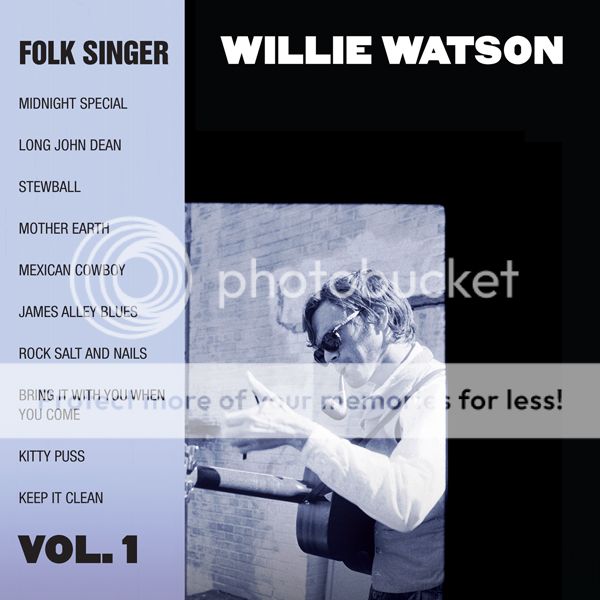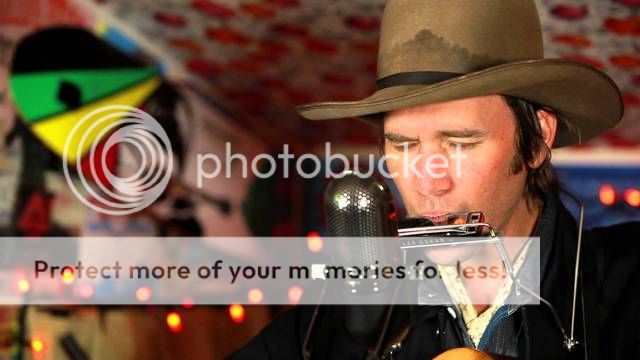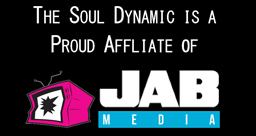
The Folk Singing Throwback
Willie Watson. He’s apart of the fabric of our American culture. You may not know him or his music off the top of your head, but the genre he represents, the genre of Folk music, is at the base of everything we listen to today. It’s apart of America’s youthful essence and our earliest traditions. The former member of Old Crow Medicine Show sits down with us to discuss folk crate diggin, why Bob Dylan is better than Elvis, cross-country train rides and how his path in life is paved by the stars above:
The Soul Dynamic: You’re from upstate New York I believe, how did where you grew up influence your art and music?
Willie Watson: I’m from the Finger Lakes, right by Watkins Glen, near Ithaca. There were a lot of old banjo players and fiddlers around those parts. Something happened back in the late 60’s and 70’s, these kids started playing old time music and later on started bands that got together and put on this festival called the Grass Roots Festival. I used to go as a kid. It was this big roots music festival, a world music festival that had all facets of sound from across the world. When I was young I loved banjo and fiddle music and started hearing that when I was 12 or 13. Around the same time I started playing guitar and seeing it first hand, seeing it all going down, the live performances, got me thinking this was something I felt I could do. I felt like I could play that music. At the time it seemed simple enough and of course when you get into it, turns out it’s a little more complex than you first might think. It really hit me though, the music, hit me really hard and it was very inspirational—it changed my whole life. You know I wasn’t into school, I didn’t like going. I was in a small town school, but it wasn’t very inspirational, so when I was 16 I dropped out of high school to play music. I had a band and we were playing shows all over town and around Ithaca, playing out at clubs and bars and once in a while we would get paid. Then I had a revelation, I was like ‘Oh my god, we can make $100 a night doing this,’ so that led me down this path.
Willie | Photography | Drew Martin
The Soul Dynamic: Did you ever think about going back to school at all? Or was it like once you started heading down that path, were you like “you know what, I’m doing this, this is what I’m into, my whole being wants to do this and it feels right?”
Willie Watson: That pretty much says it all, it definitely felt right. I never worried abut it. Something abut it just seemed like it was written in the stars.
The Soul Dynamic: Love that.
Willie Watson: And I just sort of knew that’s what I was suppose to be doing. And I felt like I was pretty good at it and people told me I was pretty good at it. People were always impressed and that’s a big help, when the people you’re performing for enjoy it, that gives you a lot of incentive to keep going. So I never worried about it. And people would always say, “Well are you sure about it, do you want to go back to school and have something to fall back on?” and I would say,“Fall back on what? This is what I do, there is no doubt in my mind that this is gonna work out.”
The Soul Dynamic: Yes, love that! What or who has been the biggest impact or influence pushing you to make music? Specifically can you go into Dave Rawling’s influence as the producer of Folk Singer Vol.1?
Willie Watson: Personally, my father was so supportive, especially in those early days. He was a teacher in my high school and he saw me going to school everyday and that I was kind of miserable there. And then I’d come home, I’d play my guitar in my room and he would just come in. He’d knock on my door and come in my room sit in the corner and just listen to me singing. He was very supportive when I quit school, which was surprising to me, because he was a teacher, he saw something in me. I think he had the same feeling that I did, that this was something I was suppose to be doing. And he was so helpful, he booked our first band, our first couple of shows, he was always so, so supportive of it and he was definitely our biggest fan. And then musically at the time, what really got me into playing music was Neil Young. I was just the biggest Neil Young fan in my early teens (so was my dad). That was that side of it. David’s Revival record influenced me and I was a big fan of it. David and I share a lot of the same musical taste, musical values if you will. You know working with Dave is so compatible and easy to do, we sort of have the same standards of what we like and dislike musically. So really there is nobody else I’d rather be working with, I’m so grateful and so thankful of those guys, of Dave, of Gil, everyone over at Aconey records has been so supportive of this solo thing. And I just like how Dave works in the studio, I like how he records things. He makes things sound good. The equiment and the method of recording and the amount of work he’s willing to put into it equals the same amount of work that I’m willing to put into it. We’re willing to put in as much time and as much effort as anything would need to have things done right, and that’s a big one for me.
The Soul Dynamic. : Agreed, passion on all ends is a must, if you don’t have people on the same page you’re going to put out shit. How’s the transition to being a solo artist, how do you feel about that?
Willie Watson: Well, looking back at it, it’s been a few years since I’ve split from the band (Old Crow Medicine Show), however I perceived it at the time, it was a little difficult and I wasn’t exactly sure what I was going to do or what road I would go down or what the new music would be. You know everything sort of happened naturally though with the solo thing and with the material I’m doing. With a little help from Dave and some inspirational sort of conversations with Dave, it happened this way and I couldn’t be happier with where I’m at, the way it all worked out, I love what I’m doing. It’s great to be able to put on the type of shows that I’m putting on to have people receive it so well. It definitely took a while to figure out, it was a totally different thing than being in a band, I’ve never really been a solo person before, so I didn’t necessarily know how to do it at first. I had to get out there and play a bunch of shows to figure it out, you know nothing can teach you like experience. With these shows I sort of got a handle of what the performances needed to be and what kind of songs I needed to play—bottom line is people received it well and that’s all I had to go on, it’s sort of my gauge, how the crowd reacts and everyone just loved it right from the start. Even during those first couple shows I did when I was so nervous and I didn’t necessarily know what I was doing, people loved it. They loved it so much and at the end of the shows they made me feel good about what I was producing.
The Soul Dynamic: Earlier you talked about conversations you had with Dave, what was the best advice he gave you?
Willie Watson: Basically that I didn’t have to worry about all the things I was worried about. He was very reassuring that what I was doing was good and substantial enough and I didn’t need to worry about writing songs. You know there’s all this pressure now in the musical world to be an innovative singer/songwriter, and do the next big thing and be the best. I was feeling that pressure, trying to write songs that I didn’t like, but I certainly enjoyed singing songs like, “Midnight Special” and “James Alley Blues.” Dave again, was very reassuring that the concept of going back and doing a record about classic folk music was going to be enough, and not only enough, but that it was better than me trying to write songs, and if I was going to reach anybody and do anything that was worthwhile and good, it was going to be singing these old songs. That was a great weight lifted for me, and the pressure was off so I wasn’t banging my head against the wall anymore and staring at a blank piece paper trying to write songs while not being inspired by the words that were getting put down. It was very liberating, the road just opened up and the path I needed to go on became clear, so I just started walking.
The Soul Dynamic: Versus. I’m going to ask five quick questions comparing two things, just fire back which one you prefer:
BBQ vs. Mexican Food – Mexican.
Bob Dylan vs. Elvis – Oh my god, that’s so hard. Shit. Bob.
Whisky vs. Rum – Neither.
Arcade Fire vs. Mumford and Sons – Arcade Fire.
Airplane vs. Tour Bus – Tour Bus.
The Soul Dynamic: You were in the documentary film, Big Easy Express, what was the highlight of being apart of that whole experience?
Willie Watson: Just being on that train. Being on that train with all those people, the romance of the train itself, those old cars. You know they were these trains cars that were used from around 1948-1952, and they were just beautiful and traveling down the rails like that…Someone like me who’s interested in older things, to be on those old cars and get thrown back in time like that was just one of the most amazing experiences of my life. Everything about it, the sounds, the smells, the way the train cars rocked you to sleep, standing on the box cars with the open doors watching the desert go by was spectacular.
The Soul Dynamic: Magical. You touched on it a bit earlier with Dave and work, but in terms of the creative process and knowing it isn’t necessarily easy, what is your process to work and ethic, and what makes it successful?
Willie Watson: In my case, sometimes I don’t see it this way, but it’s actually pretty simple, I’ve kind of got it easy in a way. Sometimes it’s harder than it is. But with what I’m doing is, I live for music and I’m listening to it all the time. It’s my daily life really, I’m always listening to music and I pray and sing at home to myself everyday. And things just come about, songs find me somehow. There’s definitely days where I’ll visit the record store, buy a stack of local records or old timey compilations, blues compilations, and I’ll take them home and listen to them knowing that I need to find some new material. And sometime on those days I’ll completely strike out, or I don’t hear something the first time through and I’ll have to listen to other stuff, and on those days you have to kind of forget about it. Find something else to do, put on a record and go paint or sew some buttons back on your shirt, don’t pay attention for a while…cause then all of the sudden the music will hit you, and the stuff I end up singing and sticking with, often times finds me rather than me finding it.
The Soul Dynamic: Dig it. Tell me about Busking, in general, I feel like it’s a lost art form, we’ve been covering it more on our site, what do you love about that experience?
Wille Watson: When Old Crow, during our busking days, when we first started that’s kind of what we did, that was the whole idea. You know you’re young 19/20 years old, leaving home was part of the whole experience, leaving home and getting out on the road and going to a town you’ve never been to before, setting up on the street and seeing what was going to happen. I feel like I’ve been very fortunate, musically things have always been kind of fruitful for me. We’d get out on the street corners and we just worked so well, attracting these big crowds, and the cops would come and tell everyone they had to stay off the sidewalk, or tell us to move to the other side of town because we were blocking traffic. It was a great experience in that it worked, we never really found ourselves frustrated. It could be a cold day in October, in Canada, and we’d be making $800 on the street corner in three hours. It really helped us become better performers, getting peoples attention and finding out what worked and what songs people liked. That’s the thing, people are walking by and you have two seconds to get their attention. If they’re walking by and you’re playing the wrong song—then you lost them. You find what works and find what doesn’t work, it really makes you a good performer. So our busking days set us up for what came up later and taught us how to put on a really successful live show.
The Soul Dynamic: So I heard in the process of making this new record you dug through your old 78’s , other than Acony, what’s your favorite record label ever?
Willie Watson: That’s tough. I don’t know if I have a favorite label. I like these old labels that put out the old time music and the traditional stuff. Ones that I always look for are: Document, Yazoo, and all the Smithsonian Folkways. The Folkways, they did such good work in the 60’s. That Smithsonian Folkway label did so much good for the world. And the labels and covers were so cool, they did a great job of getting that music out there.
The Soul Dynamic: What’s your most memorable performance live? Either something you performed or have seen?
Willie Watson: Performing live, the first time Old Crow ever did the Grand Ole Opry. The was pretty big, that was pretty cool. We were just these kids and kind of got our big break and got to play the Opry. And Marty Stuart, he was the host of the show, and we played this song and we were about to walk off stage and the crowd’s giving us a standing ovation and Marty was like, “Play it again!” and we were like, “What, the same song?” and he was like “Yeah!”and we sort of revamped back into the song in that Opry way, and that was pretty amazing. Singing the song “Paradise” with John Prine and Kris Kristofferson at Bonoroo (2010), that was awesome too.
The Soul Dynamic: What is the one thing you want people to take away from your music? What story are you trying to tell and how do you want to impact people?
Willie Watson: I just hope they enjoy it. I guess that’s all I can ask for, because I don’t know. Let me tell you, I kind of go back to this every time, but I don’t really have a perspective on it honestly. I live with my voice and my playing everyday and over time you don’t see it for what it is anymore, you get sort of used to it. It’s like looking at a painting that you see everyday and you kind of get tired of it so you take it down. Then a year or so later you put it back up and you see it for what it is again, you’re reminded of all that first inspired you about it. So I’m not going to put it down (music), stop playing music for while. I just hope people enjoy it and that it can bring some joy in their lives, maybe inspire them in some way or another. Whether it’s just going out and having a good time on a Saturday night or if it becomes their favorite record they want to share with a loved one. If my music can play some part in their lives, than I’d be really happy with that. Cause I like to be apart of everything, of humanity, it’s my place in the world, it’s sort of my role, it’s the role that I play. Music keeps me connected to everyone, it keeps me grounded, keeps me in touch with the world and the people.
The Soul Dynamic: Great answer, last question, what inspires you?
Willie Watson: Musically I love hearing good singers. It moves me. I love fiddle music, when I hear great fiddle music it can bring me to tears, you know those fast breakdowns! When you hear a good fiddle player, something about that just hits me deep in my heart and soul. It just takes me to another place. Mostly singers though, and that’s why I do it. I hear those singers and it makes me want to do it so bad! I love it so much. And I hear someone like Little Richard singing, someone like Lead Belly, and the the love I have for music really creates a strong drive in me to go out there and do the same.
Check out Willie Watson tonight at the Mercury Lounge.
Writer | Rene Ramirez
Cover Photography | Rachel Osier
Willie | Photography | Maker TV




